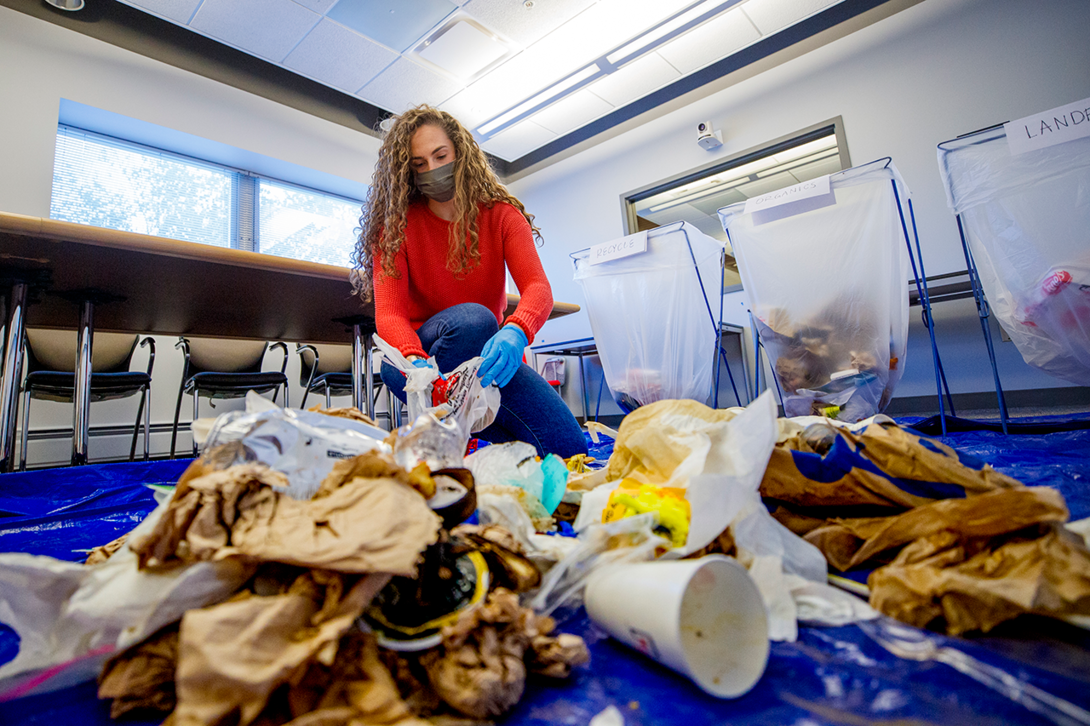
Morgan Hartman is looking to use education to make a big impact on reducing unnecessary waste at the University of Nebraska–Lincoln.
Hartman, project coordinator for recycling services, started at the university in March after working for Nebraska Extension. Having graduated from the university in May 2017 with a Bachelor of Science in natural resource and environmental economics, things came full circle as she accepted this new position on campus.
“I’m really grateful that [I was] ultimately led back to UNL to positively impact the place that so positively impacted me,” Hartman said.
Making a difference on not only the campus community, but the greater Lincoln community by making recycling easier is Hartman’s main goal in her new role. She aims to do this through education.
“You need to have enough information to make the right decision in the moment,” Hartman said.
There are already plans in the works as Hartman is currently working on a pilot project to standardize recycling containers, updating signage and messaging to clearly communicate to people what can be recycled and what needs to be landfilled.
“I hope to emphasize the practice of ‘Recycling Right’ by educating people that some things like plastic grocery bags, straws, coffee beverage cups and so many more do not belong in campus recycling containers,” she said. “Instead we should focus on reducing our usage of these items and landfilling them when we do use them on campus. In the case of plastic grocery bags, they can be returned to collection sites at most grocery stores for specialty recycling.”
On average, each person in the Lincoln community contributes 5.74 pounds of garbage per day toward the city landfill. Hartman’s goal is to reduce that total from campus through education on how to “Reduce, Reuse and Recycle Right.”
Hartman said the well-known phrase “reduce, reuse and recycle” often leads to people trying to recycle as much as they possibly can because they think that’s the right thing to do. However, when items not meant to be recycled — things like plastic straws, disposable silverware and items with food particles on them — make their way into recycling bins, it causes problems for recycling haulers and processors. So, it’s really important to provide education on what items can be recycled.
Hartman encourages people to start small by carrying a reusable water bottle, swapping plastic baggies out for reusable containers in your lunch or rinsing out your recyclable products before placing them in the bin to help eliminate contaminants. The whole purpose behind “Reduce, Reuse and Recycle Right” is to really think about the things you are using on a daily basis and what is going to happen to them once you are done using them.
“That mind shift can really help make a big difference,” Hartman said.
Hartman has enjoyed her time so far in her new position and aspires to serve as a resource to provide education to the entire campus community.
“I hope that my efforts will cultivate a culture of sustainability at UNL further positioning us as a leader in sustainability in higher education,” she said.
If you have any questions or would like to get involved with recycling and sustainability at the university, reach out to recycling@unl.edu.







